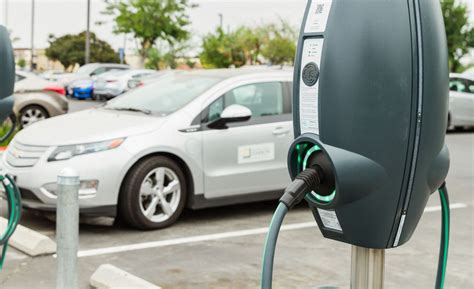The push for sustainable transportation solutions has gained significant traction over the past few years, largely thanks to technological advancements and increased awareness of the environmental impact of traditional vehicles. In this context, Edison’s Electric Vehicle (EV) Rebate Program stands out as a crucial initiative aimed at promoting the adoption of electric vehicles among consumers. This article explores the various components of the program, its benefits, and how it fits into the larger narrative of eco-friendly transportation.
Understanding the Edison EV Rebate Program
The Edison EV Rebate Program is designed to incentivize consumers to make the switch from conventional gasoline-powered vehicles to electric vehicles. The program offers financial rebates to eligible buyers, making the transition more affordable and attractive. This initiative is part of a broader effort to reduce greenhouse gas emissions and improve air quality in urban areas.
Program Eligibility
To qualify for the Edison EV Rebate Program, applicants must meet specific criteria. These typically include:
- Ownership of a new or used electric vehicle that meets the program’s specifications.
- Residency in the service area of Edison.
- Submitting all necessary documentation, including proof of vehicle purchase and proof of residency.
- Meeting any other conditions laid out by the program’s guidelines.
Rebate Structure
The rebate amounts can vary based on several factors, including the type of electric vehicle purchased, its cost, and the applicant’s eligibility. As of the latest updates, here are the general rebate levels:
- Up to $1,500 for standard electric vehicles.
- Additional bonuses for low-income applicants.
- Higher rebates for the purchase of zero-emission vehicles (ZEVs) or plug-in hybrids.
This structured approach not only incentivizes the purchase of electric vehicles but also prioritizes support for those with limited financial resources.
Environmental Impact and Benefits
The overarching goal of the Edison EV Rebate Program is to foster a cleaner, more sustainable environment. Transitioning to electric vehicles can have several positive impacts on the environment, including:
- Reduced greenhouse gas emissions: EVs produce zero tailpipe emissions, significantly lower than traditional vehicles.
- Improved air quality: Less reliance on fossil fuels leads to cleaner air, resulting in better health outcomes for communities.
- Encouragement of renewable energy use: The shift to electric vehicles often correlates with a broader adoption of renewable energy sources like wind and solar.
Supporting Infrastructure
For the Edison EV Rebate Program to be effective, it is crucial to have supporting infrastructure in place. This includes:
- Charging Stations: An extensive and accessible network of charging stations is vital for EV users. Edison has been actively working to expand its charging infrastructure to accommodate the growing number of electric vehicles.
- Public Awareness: Education campaigns are essential in informing consumers about the benefits of electric vehicles and the details of the rebate program.
- Partnerships: Collaborating with local governments and other organizations can enhance the efficacy of the program and broaden its reach.
Conclusion
The Edison EV Rebate Program represents a significant step toward promoting sustainable transportation solutions. By offering financial incentives, the program not only makes electric vehicles more accessible but also encourages a shift in consumer behavior towards greener alternatives. With the backing of state initiatives, improved infrastructure, and ongoing education, the program holds the potential to transform the transportation landscape and contribute significantly to environmental conservation efforts. As more drivers embrace electric vehicles, communities will reap the benefits of cleaner air and a healthier planet.
FAQs
1. How do I apply for the Edison EV Rebate Program?
To apply, you need to visit the official Edison website and follow their application process. Ensure you have all required documents ready, such as proof of purchase and residency.
2. Are there any restrictions on the types of electric vehicles eligible for the rebate?
Yes, only vehicles that meet specific criteria outlined in the program guidelines are eligible for the rebate. Typically, this includes fully electric vehicles and some plug-in hybrids.
3. How long does it take to receive the rebate after applying?
The processing time can vary, but applicants should expect to receive their rebate within a few weeks after approval. Keep an eye on your email for updates from Edison.
4. Can I apply for the rebate if I bought a used electric vehicle?
Yes, the Edison EV Rebate Program often includes provisions for used electric vehicles, provided they meet the program’s eligibility criteria.
5. What should I do if my application is denied?
If your application is denied, you should receive a notice explaining the reasons. You may have the option to appeal the decision or reapply if you address the outlined issues.
Feel free to adjust any sections according to your specific needs or add additional details as necessary!
Download Edison Electric Vehicle Rebate
